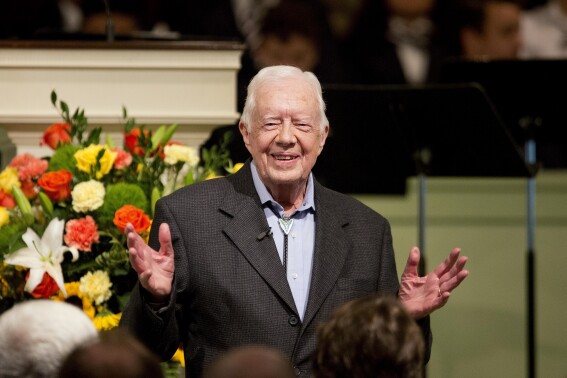“Close thy Byron, open thy Goethe!”, wrote the 19th-century historian Thomas Carlyle. The English-speaking readers who followed his advice can probably be counted on one hand, so AN Wilson’s choice to write about the life and mind of the German polymath is a daring one. It’s also splendid.
Wilson’s aim, like an evangelist on the doorstep, is to bring Goethe into our lives. Expanding Carlyle’s plea, he asks us to “close thy Wikipedia, close thy Google, close thy Bible Fundamentalism and thy Richard Dawkins’s reductionism, close thy Culture Warriors on either side, close thy popular press and thy unpopular press.” Why does Goethe matter, Wilson asks, and what are we missing by not reading him? The answer is that, quite simply, Goethe was “one of the most fascinating characters in history” who created, in the knowledge-hungry Faust, “one of the most fascinating characters in literature”.
It’s through the prism of Faust, Goethe’s masterpiece, that Wilson explores his subject’s evolving self. It’s not necessary for the reader to know the play, which Goethe first conceived as student in 1770 and finished on his deathbed in 1832, because Wilson guides us through the work stage by stage. In Faust Part One, published in 1808, a Renaissance mage sells his soul to the devil. In Faust Part Two, a satire on contemporary Europe, commentary on modern science and spin on the myth of Helen of Troy, Faust and the Devil are two sides of the same man. Together they come up with “a double scheme for enrichment – the extraction of minerals and fossil fuels from the earth, the invention of global capitalism with the printing of paper money and the extension of government loans via the banking system”. Faust envisioned both modern literature and modern humanity: breaking free from religion, a scholar pursues the truth through self-analysis and the scientific observation of the universe.
As such, Goethe, says Wilson, was the first modern man, but no other modern man is remotely like him, apart from Wilson himself, whose knowledge is vast and awe-inspiring and who writes as though Goethe has been perching on his shoulder all his life (alongside his 24 novels, Wilson has written over 30 works of non-fiction.) Goethe trained as a lawyer but thought as a scientist; it was when Freud heard first heard his thoughts on nature, Wilson argues, that he too switched from law to science. A classicist and collector with a love of Persian poetry, Goethe also published a theory of colour and studied botany, cloud formation and mineralogy; his first novel, The Sorrows of Young Werther (1774), written when he was 24, was typical of the literary movement Sturm und Drang – “Storm and Stress” – and anticipated the Romantic age. Without young Werther’s self-possession – “I look back into myself and find a world” – Freud would not have developed his concept of the unconscious.
The anarchic poet was also an administrator. Goethe’s day job as privy counsellor to the young Duke Carl August, a position he accepted in 1775, aged 26, involved supervising mines, road building and running the local university at Jena, which, as the centre of modern thinking, was the most exciting place to be in all of Europe. He had crushes on unattainable women and, if the woman he adored became attainable, he bolted. His greatest courtly love was for Charlotte Von Stein, a lady-in-waiting to the Duke’s mother, Anna Amalia, and the mother herself of seven children. Von Stein received 1,781 magnificent letters from Goethe, but Wilson doubts that their relationship was ever consummated.
Christiane Vulpius, on the other hand, Goethe fell into bed with the night they met, in a park in 1788, and married after 18 years of living together. Vulpius was a fat drunkard whose company Goethe enjoyed, Wilson says, because he was a fat drunkard himself. She was also sexy, and their sex was “clearly fantastic”. Excluded by the court at Weimar and ignored by Goethe’s friends, only when Vulpius had a ring on her finger did the writer Johanna Schopenhauer concede that “if Goethe is prepared to give her his name, the least we could do was to give her a cup of tea.”
Goethe contained many people and Wilson’s book contains a dozen others, including a treatise on suicide, a life of the playwright Friedrich Schiller (Goethe’s best friend), introductions to the philosophy of Kant and the hemispherical nature of the brain, surveys of 18th-century science, Napoleonic Europe and the history of Germany. At times Goethe: His Faustian Life feels less like reading than being engaged in the wild and brilliant table talk of a scholar with his own Faustian hunger for knowledge.
At other times Wilson becomes the animated don, carried away at the podium. On one occasion, after quoting at length Goethe’s thoughts on the eye (“the eye perceives and speaks”), Wilson says: “Without wishing to impose myself too much on the reader, I’d urge you to read this passage two or three times.” I duly did. Before you open thy Goethe, open thy AN Wilson.
Goethe: His Faustian Life is published by Bloomsbury at £25.00. To order your copy for £19.99, call 0808 196 6794 or visit Telegraph Books
Disclaimer: The copyright of this article belongs to the original author. Reposting this article is solely for the purpose of information dissemination and does not constitute any investment advice. If there is any infringement, please contact us immediately. We will make corrections or deletions as necessary. Thank you.




